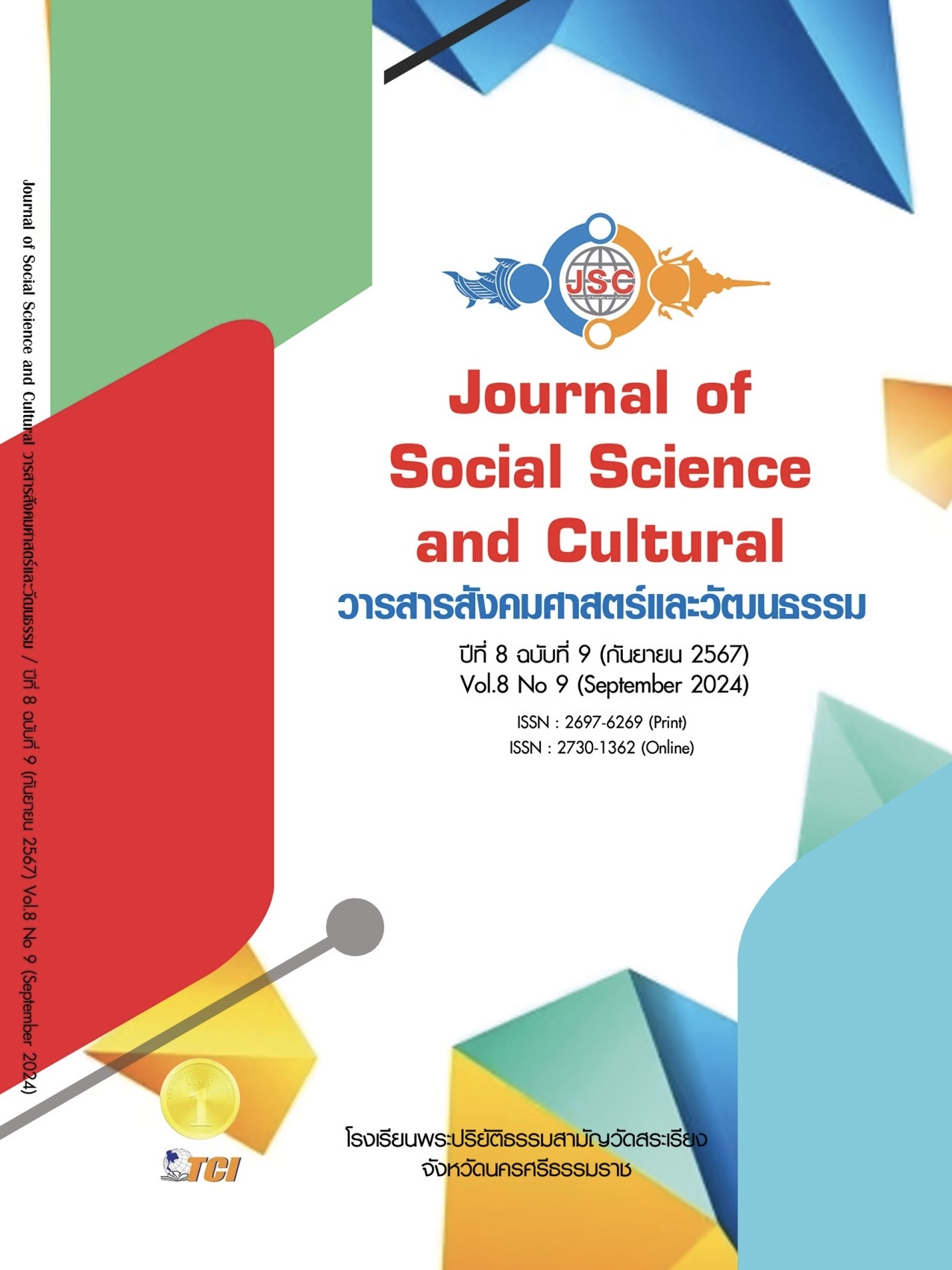THE KING’S SCIENCE AND THE DEVELOPMENT OF BUDDHIST PUBLIC WELFARE
Main Article Content
Abstract
This article aims to present the integration of the royal philosophy with the development of Buddhist public welfare work, focusing on the use of the principles and approaches developed by his majesty King Bhumibol Adulyadej the great to enhance the well-being and sustainability of Thai people, especially in terms of self-reliance, efficient use of resources, and creating a balance between humans and the environment. The royal philosophy is not only a guideline for solving social and environmental problems, but also includes the promotion of spiritual and moral strength. Integrating the royal philosophy with Buddhist public welfare work can increase the strength and sustainability of communities, especially in situations of natural disasters or social problems. Applying the principle of “understanding, reaching out, developing” in Buddhist public welfare work creates a deep understanding of the problems and needs of the people, closely accessing the community, and developing solutions that effectively respond to the problems. In addition, promoting morality and ethics through education and training also helps create a just and united society. The role of monks in guiding spiritual and morality is very important in the development of Buddhist public welfare work because it can create trust and faith in the community, enabling cooperation to create a prosperous and peaceful society. The royal philosophy and the development of Buddhist public welfare work are effective approaches to enhance people's quality of life and strengthen the stability of Thai society in the long term. Community participation and efficient use of resources are the key to achieving these goals.
Article Details
References
กรมพัฒนาชุมชน. (2565). แนวทางการประยุกต์ใช้ศาสตร์พระราชาในการพัฒนาชุมชน. กรุงเทพมหานคร: กรมพัฒนาชุมชน.
กฤษฎา อุลุชาฎะ. (2565). รูปแบบการบริหารจัดการงานสาธารณสงเคราะห์ของคณะสงฆ์อำเภอบางปะอิน จังหวัดพระนครศรีอยุธยา. วารสารการบริหารนิติบุคคลและนวัตกรรมท้องถิ่น, 8(5), 253-263.
คณะกรรมการฝ่ายสาธารณสงเคราะห์ของมหาเถรสมาคม. (2563). คู่มือการปฏิบัติงานฝ่ายสาธารณสงเคราะห์ของมหาเถรสมาคม. กรุงเทพมหานคร: โรงพิมพ์มหาวิทยาลัยมหาจุฬาลงกรณราชวิทยาลัย.
ชูเกียรติ สุธากุล. (2564). การพัฒนาที่ยั่งยืนตามแนวทางเศรษฐกิจพอเพียง: บทเรียนจากโครงการในชนบท. วารสารการพัฒนาชุมชน, 15(2), 45-60.
พระครูวิบูลสีลพรต (สมหมาย อาสโภ/โนนน้อย) และพระมหามิตร ฐิตปญฺโญ. (2562). ศาสตร์พระราชากับการพึ่งตนเอง. Dhammathas Academic Journal, 19(4), 165-176.
พระครูสุนทรเขมาภินันท์ (ปกรณ์ เจริญวงศ์) และคณะ. (2562). ศาสตร์พระราชา: พุทธบูรณาการแห่งนวัตกรรมศาสตร์สมัยใหม่เพื่อสังคมไทยทุกระดับ. วารสารกระแสวัฒนธรรม, 20(37), 87-101.
พระพรหมคุณาภรณ์ (ประยุทธ์ ปยุตฺโต). (2556). ความสำคัญของพระพุทธศาสนาในศาสนาประจำชาติ. (พิมพ์ครั้งที่ 19). กรุงเทพมหานคร: มูลนิธิการศึกษาเพื่อสันติภาพ.
พินิจ ลาภธนานนท์. (2562). อดีต ปัจจุบัน อนาคต งานสาธารณสงเคราะห์วิถีพุทธของคณะสงฆ์ไทย. (พิมพ์ครั้งที่ 2). นนทบุรี: นิติธรรมการพิมพ์.
สภาพัฒนาการเศรษฐกิจและสังคมแห่งชาติ. (2564). การบูรณาการศาสตร์พระราชาในการพัฒนาท้องถิ่นและภูมิภาค. กรุงเทพมหานคร: สำนักงานสภาพัฒนาการเศรษฐกิจและสังคมแห่งชาติ.
สำนักงานเลขาธิการสภาผู้แทนราษฎร. (2560). รายงานของคณะกรรมการขับเคลื่อนสืบสานศาสตร์พระราชาสภาขับเคลื่อนการปฏิรูปประเทศ เรื่อง “การขับเคลื่อนสืบสานศาสตร์พระราชาเพื่อการปฏิรูปประเทศ”. กรุงเทพมหานคร: สำนักงานเลขาธิการสภาผู้แทนราษฎร.


